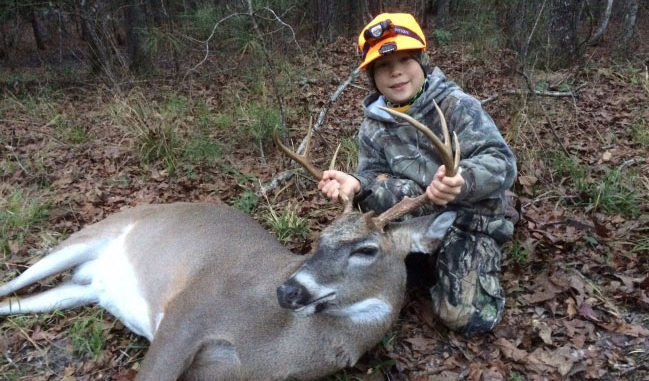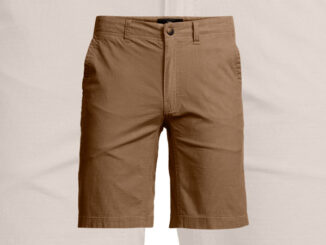
Effort to prevent CWD in Louisiana could mean changes for out-of-state trophies mounted here
Big changes could be on the way for out-of-state deer hunters returning home to Louisiana if a proposal banning the importation of cervid carcasses is ultimately approved by the Wildlife and Fisheries Commission.
The measure is being considered as means to prevent the spread of Chronic Wasting Disease in the state’s deer herd, according to Johnathan Bordelon, deer study leader for the Louisiana Department of Wildlife and Fisheries.
CWD, which is 100-percent fatal in cervids, is a neurodegenerative disease that has been found in deer herds in 23 states and two Canadian provinces. Cervids include white-tailed deer, mule deer, elk, moose, caribou, fallow deer, axis deer, sika deer, red deer and reindeer.
The tough part about combatting this disease — which is why the carcass ban is being considered — is that mutated proteins from infected animals can survive in the environment without a living host.
“The infective agent in this case can persist outside of the host. That’s very different from most diseases that we’re familiar with. Most are host dependent — they cycle, and they’re here then they’re gone,” Bordelon said. “But this is very different. It persists in the environment. So once you have it, it’s never going to go away.
“It’s there, and it has the ability to reinfect new animals over time that are exposed to that infective agent… It (CWD) was so far away for so long, and now it’s basically on our doorstep.”
White-tailed deer in Texas and Arkansas have tested positive for the disease, but Bordelon stressed no Louisiana deer have been confirmed yet. Neither have deer in Mississippi, Alabama or Florida — but it can take up to two years before infected animals become symptomatic.
The toughest part of the regulation — which is being considered by the commission but has not yet been approved — would be if a Louisiana hunter wants to bring a trophy animal home to be mounted.
“That’s the unfortunate part of this provision. The only real means is prevention, and the problem with that is it’s going to come at the cost of some convenience for hunters,” Bordelon said.
The notice of intent currently states, “No person shall import, transport or possess any cervid carcass or part of a cervid carcass originating outside of Louisiana, except: deboned meat, antlers, clean skull plates with antlers, cleaned skulls without tissue attached, capes, tanned hides, finished taxidermy mounts and cleaned cervid teeth.
“Approved parts or deboned meat transported from other states must be legally possessed from the state it was taken. Approved parts and deboned meat from other states must contain a possession tag with the hunter’s name, out of state license number (if required), address, species, date and location (county and state) of harvest. All cervids transported into or through this state in violation of the provisions of this ban shall be seized and disposed of in accordance with the Wildlife and Fisheries Commission and Department of Wildlife and Fisheries rules and regulations.”
Bordelon said trophy mounting had been a sticking point in many of the 36 states that have already implemented the carcass importation ban.
“There can be no tissue attached — that would be cape only and a clean skull cap. The cape is essentially just the hide itself,” Bordelon said. “That’s what would be allowed. Any of the associated tissues, you wouldn’t be able to have those with the cape. If they’re unable to do that, they’ll have to find a service in the state they’re hunting that can perform the taxidermy, or at least cape the animal out for them so they can legally possess it and bring it back here if they have someone in Louisiana they would like to mount the animal.
“Of course, if they’re on an outfitter hunt, it becomes less of an issue because those out-of-state outfitters will provide that service to their clients. But the guy who is just hunting on his own — it’s definitely a greater challenge to find someone to do that,” he said. “That’s basically what they would be faced with – they would have to seek out someone in the state they would be transporting the animal from to perform that service for them so they can legally possess the animal.”
Enforcement-wise, Bordelon said things won’t be much different for game wardens as they are right now if the ban goes into effect.
“Regardless of if this comes to pass, a deer coming into Louisiana still has to meet certain tagging requirements. That’s not going to change one way or the other,” he said. “This is just another potential violation in addition to the violations they could face before this rule.
“So if you’re coming into Louisiana with a deer that has no information on it, that’s a problem. Right now that’s an issue. You will be cited for that deer and it will be confiscated. Nothing is changing there. It’s still going to be the same enforcement here with or without this rule. The difference if this passes is you’re going to have to meet some provisions in addition to that tagging requirement.”
Bordelon believes the inconvenience is worth the health of the deer herd, but said hunter effort and participation likely will be big factors in preventing the spread of CWD here.
“Obviously there are some challenges and hurdles and inconveniences when you’re trying to prevent a disease like this, so the success of this proposal if it comes to pass in our ability to prevent CWD from entering our state from infected carcasses is really going to be on the effort the hunters put forth,” he said. “Obviously they’re going to be the deciding factor on the prevention. It’s really up to them to take responsibility and make the effort to reduce the risk to our Louisiana deer herd.”
To see the full notice of intent, click here.
Interested persons can submit comments by mail to Johnathan Bordelon, Wildlife Division, Department of Wildlife and Fisheries, P.O. Box 98000, Baton Rouge, La. 70898-9000, or via email here.


